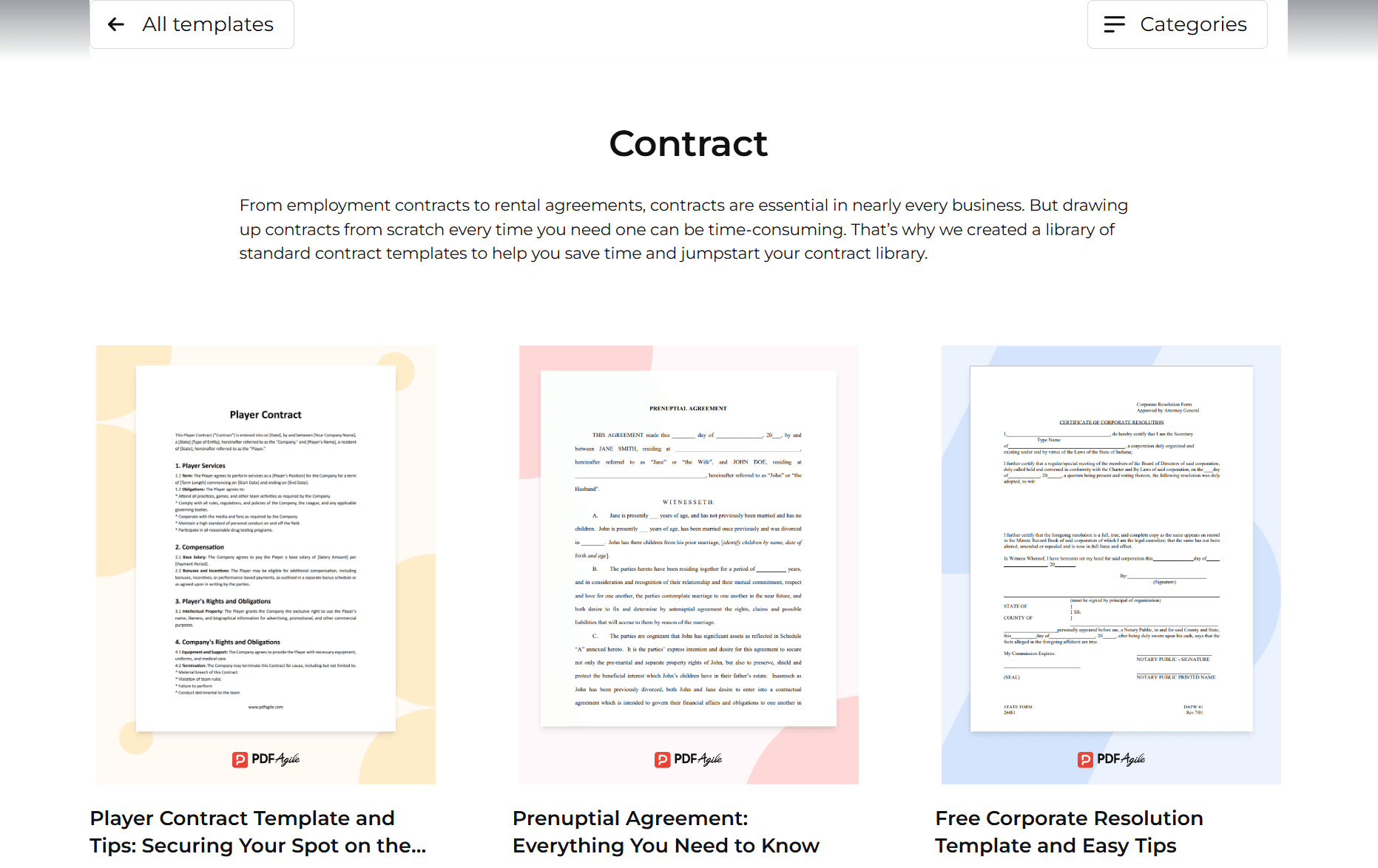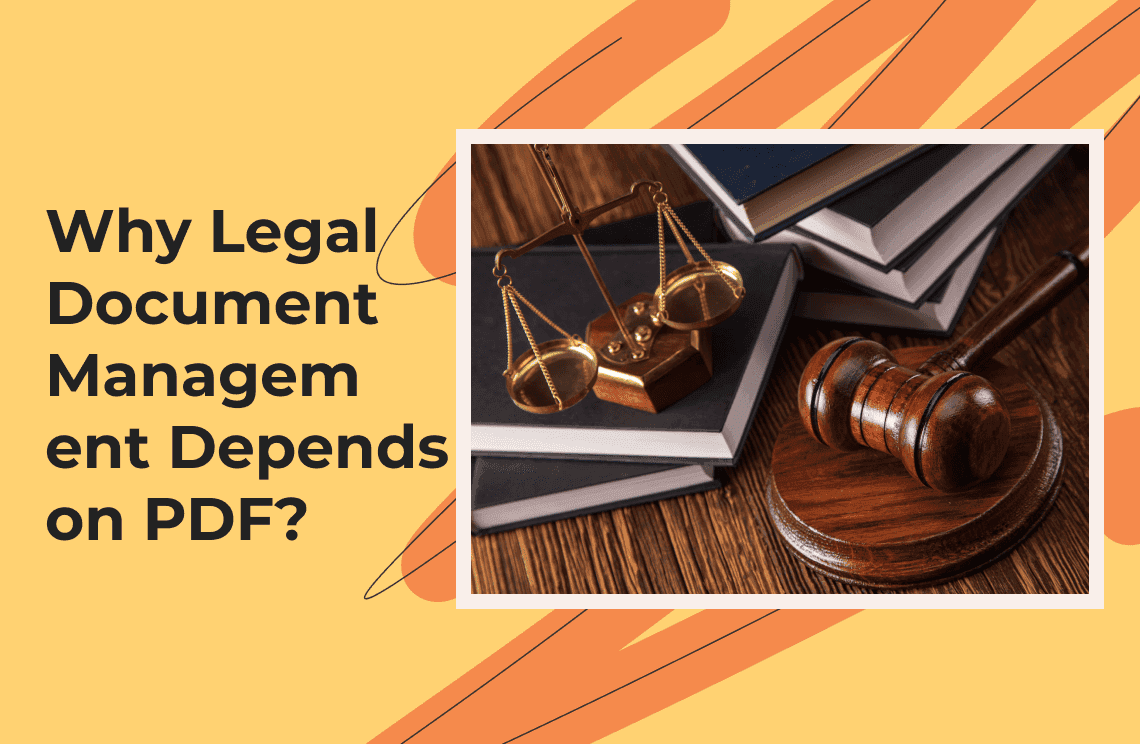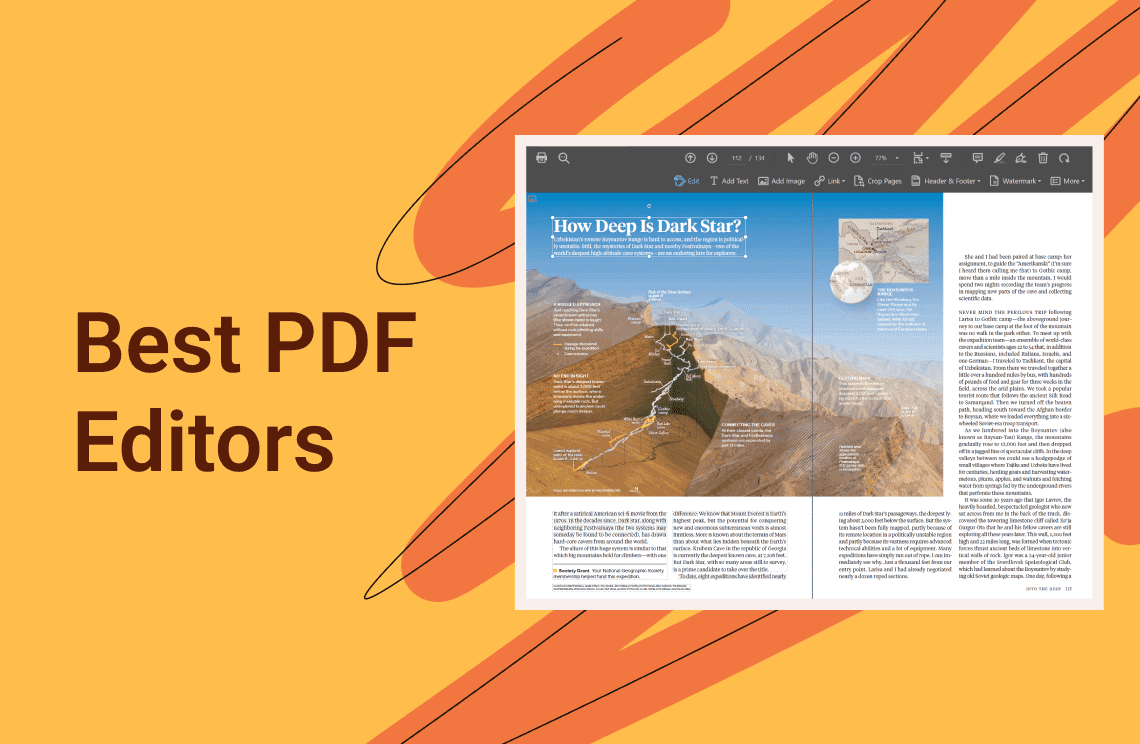The legal industry prefers using PDF documents above others and this is because PDFs can preserve security and formatting; they can also retain the styles of the document when accessed on any other platform. Before a PDF document can be used as a legal or court-ready document, it must fulfill certain requirements and criteria according to the rules of the legal system and the court concerned. In this informative write-up, we will show you some of the criteria the PDF document must meet before it can be considered reliable for legal document management. We will also shed more light on why PDFs are preferred for legal document management.
Why PDF Is Preferred for Legal Document Management?
Point 1: Improve Document Mobility
PDF is accessible on both desktop and mobile devices. When you access the document on mobile phones, their original formats will still be maintained. This way, your legal documents can be accessible on the go without issues. With your mobile phone, therefore, you can always take your legal documents along with you everywhere you go. You will also not have to sift through loads of paperwork while in the courtroom in search of specific case files. This will save you a lot of time. PDF applications can be accessed via USB Drives, tablets, and computers.

Point 2: Effortless Information Retrieval
Paper documentation can be time-consuming and tasking. If you have hundreds of case files to sieve through, you can spend several minutes to locate a specific document. You can be freed from this stress by converting your paper documents to soft copies and the best form is PDF since it maintains its formatting irrespective of the platform where it is viewed. Thanks to PDF technology, you can easily and quickly locate any particular document or data with a simple touch of your screen.
Point 3: Boost Legal Research
The integrated search function is not accessible in traditional papers, slowing your pace when searching for any document or case file. You can easily locate that case file by typing any word or phrase related to the document in the PDF search tool and the desired results will pop up. The search icon can be found at the top right of the PDF tool if you need to check any specific term, figure or name when preparing for any trial or right there in the courtroom when the trial is ongoing, you will find this function handy. Aside from saving you a lot of time, the easy search function will help you maintain your confidence and attention in the courtroom.
Point 4: Confidentiality Fully Safeguarded
Your legal documents can remain confidential without loss of integrity, making it the best software tool for your sensitive, confidential documents, which is usually the case with most legal documents. The many security features present in PDFs contribute to the confidentiality of your sensitive documents. PDF allows you to encrypt your files using passwords. You can equally add a digital signature and restrict copying or printing of any document. Consequently, your sensitive documents will become inaccessible to unauthorized persons. The restriction can be done in such a way to only allow authorized individuals to print, edit, and view the document.
PDF permits the addition of digital signature to documents, any alteration made to the digitally signed document will be easy to trace and the tampering will be detected with ease, thereby invalidating the document.
Point 5: Access Your Documents on Any Platforms
Thanks to PDF technology, you can easily view your documents on any operating system or device. This is possible because PDF is platform-agnostic. If you had created the PDF document on the Windows operating system, for example, the platform-agnostic capability of PDF will enable you to view that document on Linux or even macOS. You can also access the documents on desktop computers, tablets, and smartphones with the formatting remaining untampered as you transfer the document from one platform to another. If you need to collaborate with your learned colleagues on any case, for example, the said colleague can easily transfer the case file to you from any software or hardware with the assurance that you will get the document in its original form.
PDF has very strong security, mobility, and interoperability features, making it a courtroom-friendly file format. There are strong indications that PDF will supersede every file format for legal documentation due to its many security features.

Point 6: File Size Reduction
If you have large legal documents that will require a lot of space on your digital devices like PC, tablets and smartphones, PDF can shrink or reduce the size of the file without affecting its contents or format or compromising its quality. The inbuilt compression features in PDF ensure that you can transmit files efficiently and quickly via uploading or emailing; you can also do this with a few clicks of the mouse.
Point 7: Collaborate with Ease
As a legal team member, be it an administrative staff, paralegal, or attorney, you cannot escape from collaboration with other team members. PDF technology makes collaboration very easy since it permits easy file transfer among team members. You can use the file-sharing features in PDF to share legal documents with any team member and receive important files from them on the go and at the snap of a finger. You will never have to worry about mismatched program versions, missing format, or missing documents when you use PDF.
FAQs
Q: What is a PDF, and why is it important in the management of legal documents?
A: A Portable Document Format, or PDF for short, is a document format utilized in the representation of documents in a manner quite independent of application software, hardware, and even operating systems. PDFs are important in the management of legal documents, as they ensure that the format of the documents remains constant across any device. This consistency in appearance is critical in maintaining the integrity of legal documents during sharing and filing.
Q: How do PDFs make this management of legal documents more secure?
A: PDFs can be secured with features like password protection, encryption, and digital signatures. This ensures that sensitive legal information is not accessed or altered in an unauthorized manner, therefore remaining compliant with legal and ethical requirements. Furthermore, PDFs can contain an audit trail indicating who has accessed or amended a document.
Q: What is the role of PDFs in enhancing collaboration among legal professionals?
A: PDFs enhance the collaboration of many users through simultaneous annotation, commenting, and reviewing of documents without changing the content of the original. The sharing of PDFs by legal professionals is quite easy through email or document management systems for effective communication on cases. This shared capability contributes to timely decision-making in legal practices.
Q: Do PDFs help in matters of compliance and regulatory requirements?
A: Of course, PDFs will help much in this respect to be compliant with these various regulatory requirements. Legal documents, if stored as PDFs, can be easily arranged and archived according to a retention policy and can be readily found when audits or other compliance checks come around. Moreover, the ability to secure PDFs helps ensure that sensitive information is handled appropriately, reducing the risk of penalties for non-compliance.
Conclusion
The information provided above would have opened your eyes to why PDF is the best technology for legal document management. It offers secure document distribution across software platforms and hardware devices. File sharing across devices and operating systems will never affect the document formatting or quality. PDF can also compress files, reducing bulky documents to manageable sizes. Do not be surprised to see PDF becoming the default legal document management tool in the future. You should key into the many opportunities and possibilities in PDF to ensure complete security and perfect handling of your legal documents. Meanwhile, we do have a PDF Agile Template Center offering various legal documents such as Contract, Agreement, Receipt and so forth, which would definitely do you a favor to handle different legal problems.






